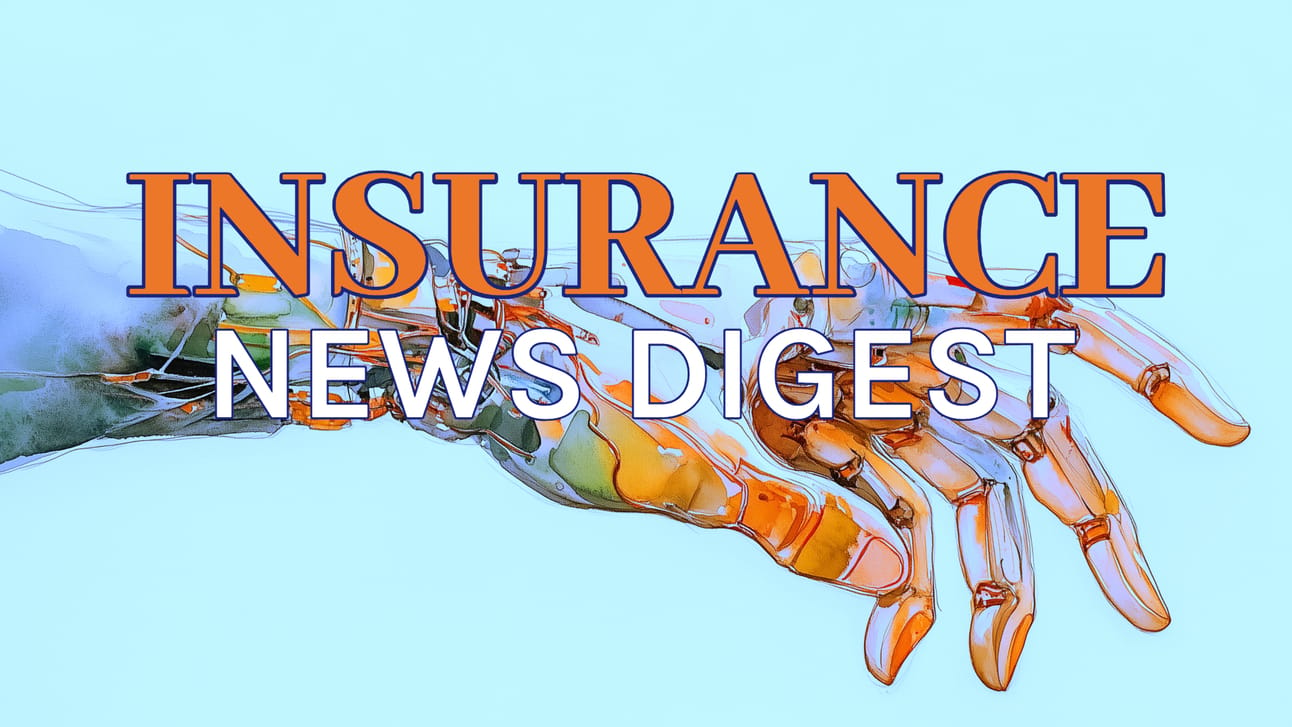- Insurance News Digest
- Posts
- Insurance News Digest 5-15-2025
Insurance News Digest 5-15-2025
Today's articles highlight the rising complexity of cyber threats like deepfakes and email fraud, especially for high-net-worth individuals and businesses. There's a growing need for proactive risk management and more tailored cyber insurance coverage.

We deliver the latest insights and developments shaping insurance, focused on insights and opportunities for those who serve the insurance industry. Stay informed on how emerging trends like current events, regulatory changes, AI, and innovative products can help you better serve your clients and partners and drive business growth.
The Daily Newsletter for Intellectually Curious Readers
Join over 4 million Americans who start their day with 1440 – your daily digest for unbiased, fact-centric news. From politics to sports, we cover it all by analyzing over 100 sources. Our concise, 5-minute read lands in your inbox each morning at no cost. Experience news without the noise; let 1440 help you make up your own mind. Sign up now and invite your friends and family to be part of the informed.
Top 10 Articles Of The Week
The U.S. property/casualty insurance industry achieved a combined ratio of 96.5 in 2024, marking its best underwriting performance in over a decade. Personal lines improved by 10 points, driven by gains in homeowners insurance, while commercial lines remained stable.
Liberty Mutual reported a 33% drop in Q1 2025 net income, totaling approximately $1 billion. Catastrophe losses, particularly from California wildfires, contributed $1.8 billion to the quarter's combined ratio of 96.6. Despite this, the company improved its underlying combined ratio to 81.9.
California regulators approved State Farm's emergency rate increase: 17% for homeowners, 15% for condo owners and renters, and 38% for rental properties. The insurer expects to pay $7 billion in claims from January's Los Angeles wildfires, affecting over 12,000 policyholders.
Artificial intelligence is transforming insurance compliance by streamlining verification processes and enhancing risk insights. AI tools assist in identifying emerging risks, providing deeper analysis, and enabling informed decisions, thereby reducing manual efforts and improving accuracy.
The NOAA has discontinued its program that tracked weather disasters causing over $1 billion in damages. This move eliminates a key resource for insurers and emergency managers, potentially impacting the assessment and management of climate-related risks.
Insurers are increasingly considering a company's online presence when assessing liability risks. This shift means that public perception can directly influence underwriting decisions and premium costs.
A recent survey reveals that 88% of insurance employees experience significant stress and anxiety, with younger professionals seeking mental health support more frequently. Factors contributing to this include economic volatility, geopolitical tensions, and technological disruptions.
Despite efforts to limit rate hikes and increase transparency, Texas legislators face challenges in curbing rising homeowners insurance premiums. Factors such as increased property values, climate change, and higher construction costs continue to drive up rates.
Florida's new condominium legislation aims to ease financial burdens on owners but raises concerns among insurers about potential underfunding and undervaluation of properties. The bill allows more flexibility in reserve funding and extends deadlines for structural studies.
Following the January wildfires that destroyed thousands of structures, LA residents are starting the rebuilding process. Challenges include navigating permitting processes, addressing potential toxic contamination, and managing rising construction costs.
Focus Of The Week: Today's articles highlight the rising complexity of cyber threats like deepfakes and email fraud, especially for high-net-worth individuals and businesses. There's a growing need for proactive risk management and more tailored cyber insurance coverage.
Coalition's 2025 Cyber Claims Report reveals a 7% year-over-year decrease in global cyber insurance claims frequency for 2024, attributed to proactive cyber risk management. Despite stable average loss amounts at $115,000, ransomware incidents, though fewer, resulted in higher costs per event, emphasizing the need for vigilant cybersecurity practices.
High-net-worth individuals are increasingly targeted by sophisticated cyber threats, including AI-generated deepfakes and wire transfer fraud. Traditional cyber insurance policies often fall short in coverage, prompting a call for more comprehensive solutions tailored to these evolving risks.
Coalition reports a 23% increase in the severity of business email compromise (BEC) claims in 2024, with average losses reaching $35,000. Approximately one-third of BEC incidents involved funds transfer fraud, highlighting the escalating financial impact of such cyber threats.
*See a list of our preferred publications here.

